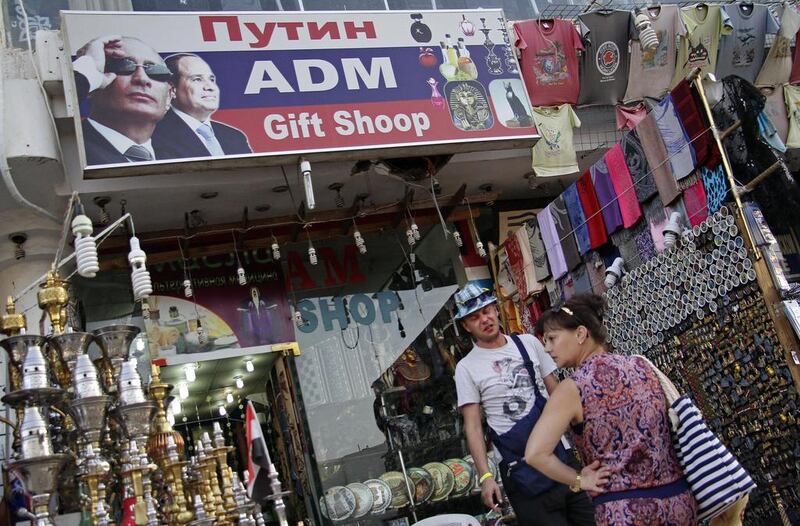Sharm el Sheikh // Thousands more foreign tourists flew home from Egypt’s Sharm El Sheikh on Monday after the downing of a Russian airliner claimed by militants.
The ISIL group’s affiliate in the Sinai claimed responsibility after the Russian Airbus crashed on October 31 in the Sinai Peninsula while en route from Sharm El Sheikh to Saint Petersburg, killing all 224 people on board.
Britain and the United States, as well as international investigators, suspect a bomb exploded on board, but Egyptian officials insist there is no evidence yet of an attack on the plane.
Tens of thousands of foreign tourists – including some 80,000 Russians and 20,000 Britons – were stranded in the resort after flights were cancelled over security fears.
Moscow said on Monday that about 25,000 Russian tourists had returned on more than 100 flights.
A spokeswoman for British prime minister David Cameron’s office said some 5,000 Britons had returned so far.
A security official at the airport gates said hundreds of tourists had flown out since Monday morning, most of them Russians.
Plainclothes officers stood guard across the coastal resort, outnumbering tourists near some beaches.
Flight numbers have been limited because both Russia and Britain have banned tourists from bringing their check-in luggage, which will be flown home separately.
That restriction has prompted Egypt to limit the number of daily repatriation flights because it says there is only so much baggage its airports can accommodate.
The crash has led to calls for greater security at airports in regions near where extremists are operating.
It has also raised fears for Egypt’s vital tourism industry, which had already been suffering from years of unrest.
On Saturday, the head of Egypt’s investigative committee said the cause of the crash was still not clear.
“Initial observations ... do not allow for identifying the origin of the in-flight break-up” of the aircraft 23 minutes and 14 seconds after it departed, Ayman El Mokkadem said.
Egypt has pushed back against mounting international concerns that a bomb brought down the plane, with foreign minister Sameh Shoukry saying it was too early to form a “hypothesis”.
Sources close to the probe have said that experts involved in the investigation, with the exception of the Egyptians, “strongly favour” the theory of a bomb on board.
One source said there was only an “infinitely small” chance that a technical incident was behind the “sudden explosive decompression” on the plane suggested by an analysis of its black box flight data and voice recorders.
An Airbus official also defended the planes’ safety.
“We are confident in the safety of the A321. It has a fantastic safety record,” Airbus spokesman Justin Dubon said at the Dubai Airshow.
ISIL claims it downed the plane in retaliation for Russian air strikes in Syria, but has not said how.
If it was behind the attack, it would be the first time the extremists, who control large areas of Syria and Iraq, have hit a passenger plane.
* Agence France-Presse





